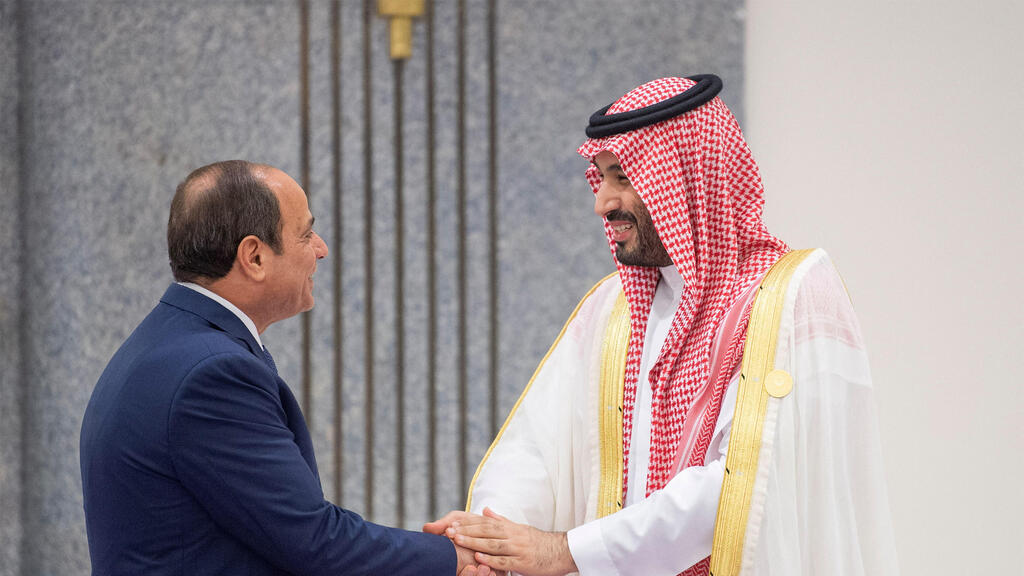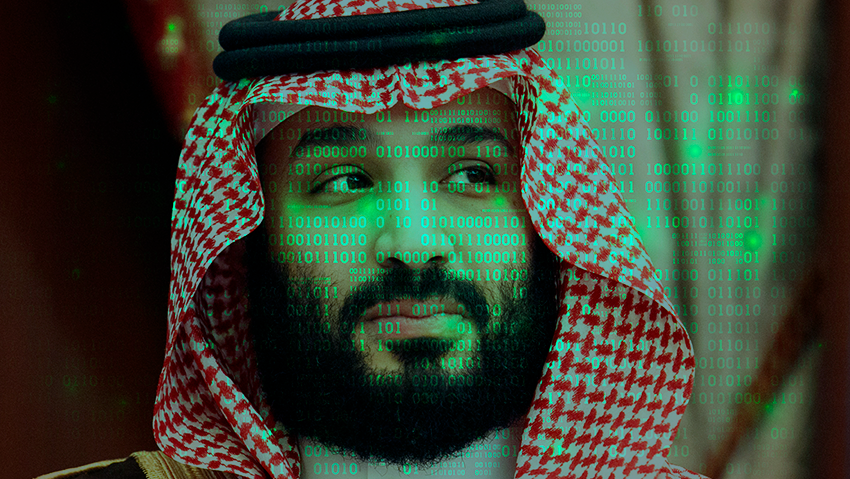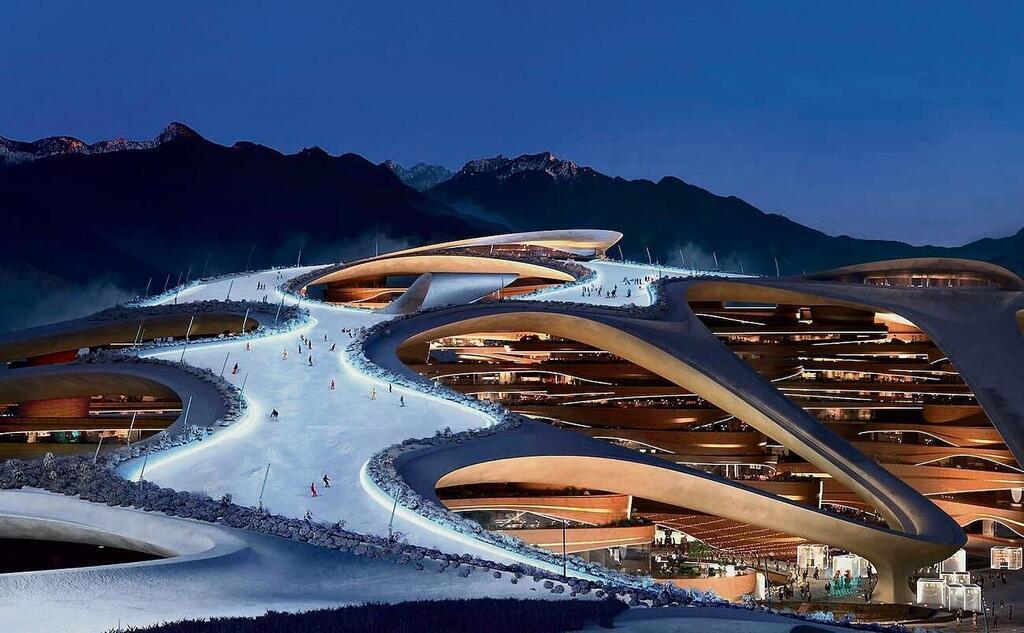Getting your Trinity Audio player ready...
The new Saudi Arabia does not hide its ambitions to lead the Arab world. The terminology used to describe its coveted position: leadership, hegemony, pioneering, dominance and even superpower, reveal the expectations of the role the kingdom is seeking. When Saudi Arabia looks around at the region it sees the fate of Arab capitals, those whose leadership roles relied on their history spanning the years from the early Ottoman Empire to the post-colonial era.
More stories:
Cairo is in the midst of a financial crisis, Damascus is hemorrhaging from years of civil war and Bagdad is being torn apart by 50 years of internal and external strife, international blockades and political and social upheaval.
Riyadh enjoys special advantages: Saudi Arabia has a vast territory, a medium size population and endless resources of energy. It will have a significant role in green energy when the use of polluting fossil fuel will be cut back and its land, which spreads from the Gulf to the Red Sea, has a wealth of enriching and sustainable resources. Above all, Saudi Arabia has been blessed with Mecca and Medina and the sacred mosques that have made it the desired destination of all Muslims and most Arabs, providing it with the opportunity to easily assume a leadership role with the smart use of its existing religious and political resources.
The Saudi regime changed in 2015, transitioning from the generation of sons to that of grandsons and led by the ambitious Prince Mohammad Bin Salman. For the past two years, he has been third in line for the thrown and had become the most powerful in the nation's leadership. Not yet 40-year-old, in his first three years, the prince was prone to grand adventures (the war in Yemen, the siege of Qatar, the murder of journalist Jamal Khashoggi), but in the following years, had brought reconciliation between Gulf nations, A wiliness for compromise in Yemen, a recalibration – although a quiet one – of Saudi relations with Iran, under Chinese auspices, a willingness to engage with Damascus and a thawing of relations with Turkey. All that has allowed the kingdom to forge international alliances and interact with world economies on the basis of common interests.
Internally MBS is leading rapid changes that will topple the religious establishment of Wahhabism and realign the balance of power within the royal family and in the financial sectors. A Saudi woman, who was prohibited from driving a car or riding a bike, will be the first Saudi Arabian astronaut. Mega projects fit for science fiction films are being planned, tourism sites and holiday resort will be opened and the beating heart of the kingdom will be moved from the desert and the Gulf, to the shores of the Red Sea and its nearby islands.
MBS will have the support of young Saudi Arabians and of women, which will make up for the loss of support from conservatives and opponents. Observers agree: MBS has passed the test in the internal arena, with minimum, opposition or damage but internationally, he has yet to receive recognition in the public, political, or scientific spheres.
Are we now on the cusp of a strategic shift in Saudi policy? Or is MBS just stalling until the Republicans return to the White House while poking at the Democratic administration that openly threatens him and his country? Is Saudi Arabia serious about its relations with China, Russia and Iran or is it just in a holding pattern, trying to negotiate with the U.S. and the West from a more advantageous position? The spectrum of answers varies from concern to approval but the fact that the kingdom is undergoing strategic changes is becoming evident. MBS is introducing new rules in a new world order.
Long-time Arab leaders tend to make peace with Saudi Arabia's new leadership. They want to return to leadership roles in the region but cannot do so and that will be a source of constant tension with Riyadh. Eventually, they will accept Saudi Arabia's place in what had been their sphere of influence. Still, the Saudi regime depends on two challenging and critical conditions:
If in the past, nations in the Gulf were led by one dominant country, there are now three. The ongoing competition between Riyadh and Abu Dhabi, which has a personal component, has become a familiar occurrence. Qatar still remembers the siege imposed upon it and the winds of war that were blowing in its direction and are following Saudi's awakening with concern.
3 View gallery


Egyptian President Abdel Fattah Saeed el-Sisi with Saudi Crown Prince Mohammed Bin Salman
(Photo: Reuters)
The second challenge lies in Cairo. Egypt, which had in the past held the leadership role in the Arab world, understands the power gap with Riyadh but will not bow to its dictates. Damascus and Bagdad cannot compete for leadership but are also too bound by their internal problems and their external alliances to even try.
Saudi Arabia will become the leader of the Arab world under two conditions. The first is the acceptance of its vision for inter-Arab relations based on economic integration, distribution of the fruits of regional development and the establishment of operational systems that are based on mutual interest. In other words, only if it distributes some of the spoils, will the Saudi leadership stand. Riyadh will have to expand its vision from an internal policy to an international, regional one and not on the basis of Saudi aid or funding, but according to the rules of investment, development and the transition of the economy from a consumer-based one to an economy based on production.
The second condition is a clear and unequivocal position expression of support for the Palestinians which are still paramount in the heart of most Arabs. Saudi Arabia has committed to defend the rights of the Palestinian People, to support them and regard Israel as the enemy that threatens not only them but all other Arabs as well. It must turn away from the notion of normalization of ties with Israel and the Abraham Accords and once again unite Arab nations. It must be open to better relations with Turkey and Iran as a countermeasure to the dangers of Western colonialism.
For now, Saudi Arabia does not seem to have the road map to deal with all those challenges and fulfill those conditions. Until it does, political changes will continue to raise doubt and speculation. The Saudis will be able to play an active role in the Arab sphere but must do more than declare their intentions. Vision, strategy determination, resources and above all alliances and dialogue, in place of hegemony and dictates, are the ingredients needed to lead the Arab world.
Oraib Rantawi is the founder and director general of the Amman-based Al Quds Center for Political Studies. He is a writer and columnist



